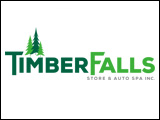It surprises many people when I tell them that they must shower before going into a hog barn and that their outdoor shoes are not nearly clean enough to be worn next to the pigs, but both statements are true. Strict biosecurity is a critical component of animal care and welfare.
Biosecurity protocols are key to helping farmers keep production diseases like Porcine Epidemic Diarrhea (PED) and Porcine Reproductive and Respiratory Syndrome (PRRS) out of their barns. Biosecurity is also critical in preventing foreign animal diseases like African Swine Fever (ASF) from entering Canada. Good biosecurity helps keep animals safe and healthy.
The last major outbreak of PED in Manitoba, which began in the fall of 2021 and lasted through the spring of 2023, is estimated to have cost the province more than $100 million. Current estimates indicate that PRRS in the U.S. is costing the industry there $1.65 billion annually.
Manitoba’s hog and pork producers learnt some key lessons from the last PED outbreak. The first is that the entire sector needs to work together if we are going to effectively protect the health of animals under our care. The second key lesson is more difficult. Sometimes, parts of the value chain will need to take actions that are not in their short-term fiscal interest but are in the long-term interest of industry. This collaboration demonstrates the industry willing to do the right thing even when there is a short-term cost. The result of this teamwork is Manitoba’s PED Elimination Plan, which has been effective in stopping disease spread.
Farmers sometimes complain that outside experts are quick to tell them how to farm but can be very slow to recognize the results of their efforts. That should not be the case here. Farmers and industry stakeholders should be recognized and congratulated for their collaboration on biosecurity and disease prevention and containment efforts.
Stringent biosecurity requirements explain why producers are concerned about unauthorized people coming onto their farms or into contact with their animals. If people from outside of the farm breach biosecurity the efforts aimed at preventing the spread of disease will be for naught. This is a key reason why farmers support anti-trespass legislation.
For farmers, doing the right thing goes beyond keeping diseases out of their barns. Farmers also work on a day-to-day basis to safeguard the overall welfare of their animals. Hog producers across Canada are guided in these efforts by the 105 Code of Practice requirements for the Care and Handling of Pigs. Backing up the Code of Practice is legislation and regulation, like Manitoba’s Animal Care Act.
Confirming compliance with high standards for animal care includes verification. The Canadian Pork Excellence (CPE) program is a national platform for producers to demonstrate compliance with food safety, animal care, and traceability standards. Program registration is required to ship animals to federally inspected processors. Under these programs, animal care is assessed regularly, including regular visits from the herd veterinarian.
The Code is not something that was made up by industry as a public relations exercise. It is the result of a rigorous development process that uses the best science on pig health and welfare, compiled through an independent peer-reviewed process. The Code Development Committee includes independent scientists, representatives from animal welfare organizations, veterinarians, governments, and consumer-facing members, in addition to farmers.
Doing the right thing also includes ongoing improvements in environmental sustainability. For example, modernization of agriculture has revolutionized nutrient management. Past generations did not have today’s research or tools to minimize manure runoff. Currently, over 90 percent of hog manure in Manitoba is either injected below the surface or incorporated into the soil after it is applied to the land. This prevents leaching into our waterways and positions the valuable nutrients next to the seed where it is most beneficial for the crops.
Advances in technology are making the application of manure more precise. Modern equipment can test the flow as manure is being applied, using near infrared technology, and vary application rates on a real-time basis. Farmers use global positioning technology, ultrasonic speed sensors, and radar to ensure that manure is applied in the right place and at the right rate. Technology allows farmers to maximize the benefits of this natural fertilizer while helping to minimize nutrient leaching into waterways.
Compliance with modern regulations helps deliver advancements in sustainability. Before applying manure, farmers are required to file manure management plans with the provincial government. These nutrient management plans are tailored to the specific crops being grown and include soil sampling to help prevent the over application of nutrients.
The environmental and animal care record of modern Manitoba hog farmers is one in which they take pride. It is also a record that should be a source of pride for all Manitobans. Nutritious high-quality pork from Manitoba’s farmers is raised in a sustainable way that will help ensure the industry’s ongoing contributions to our economy and job creation in our local communities.



